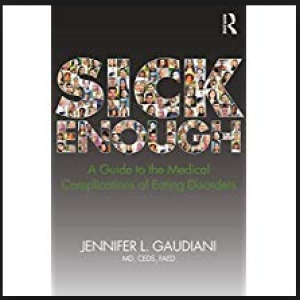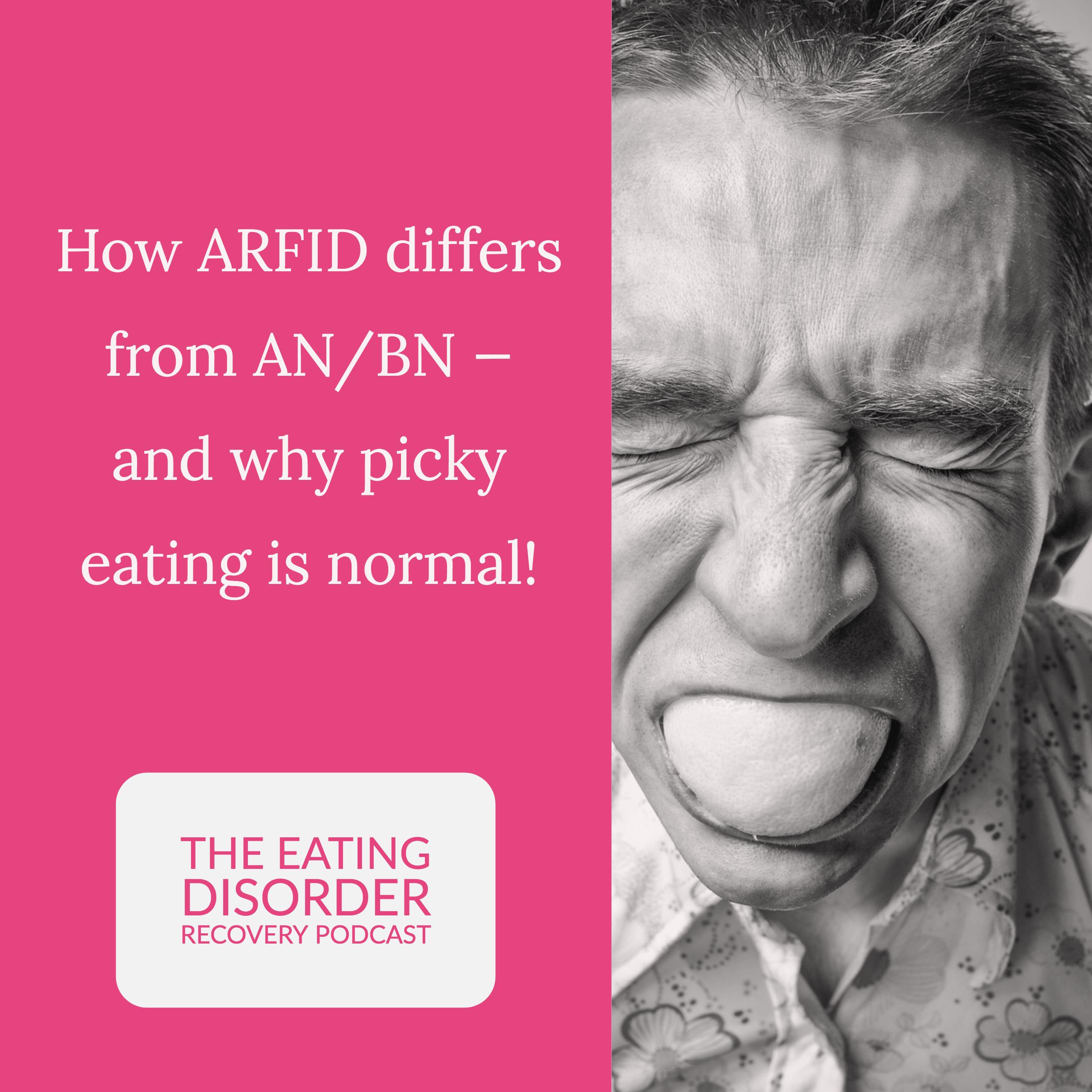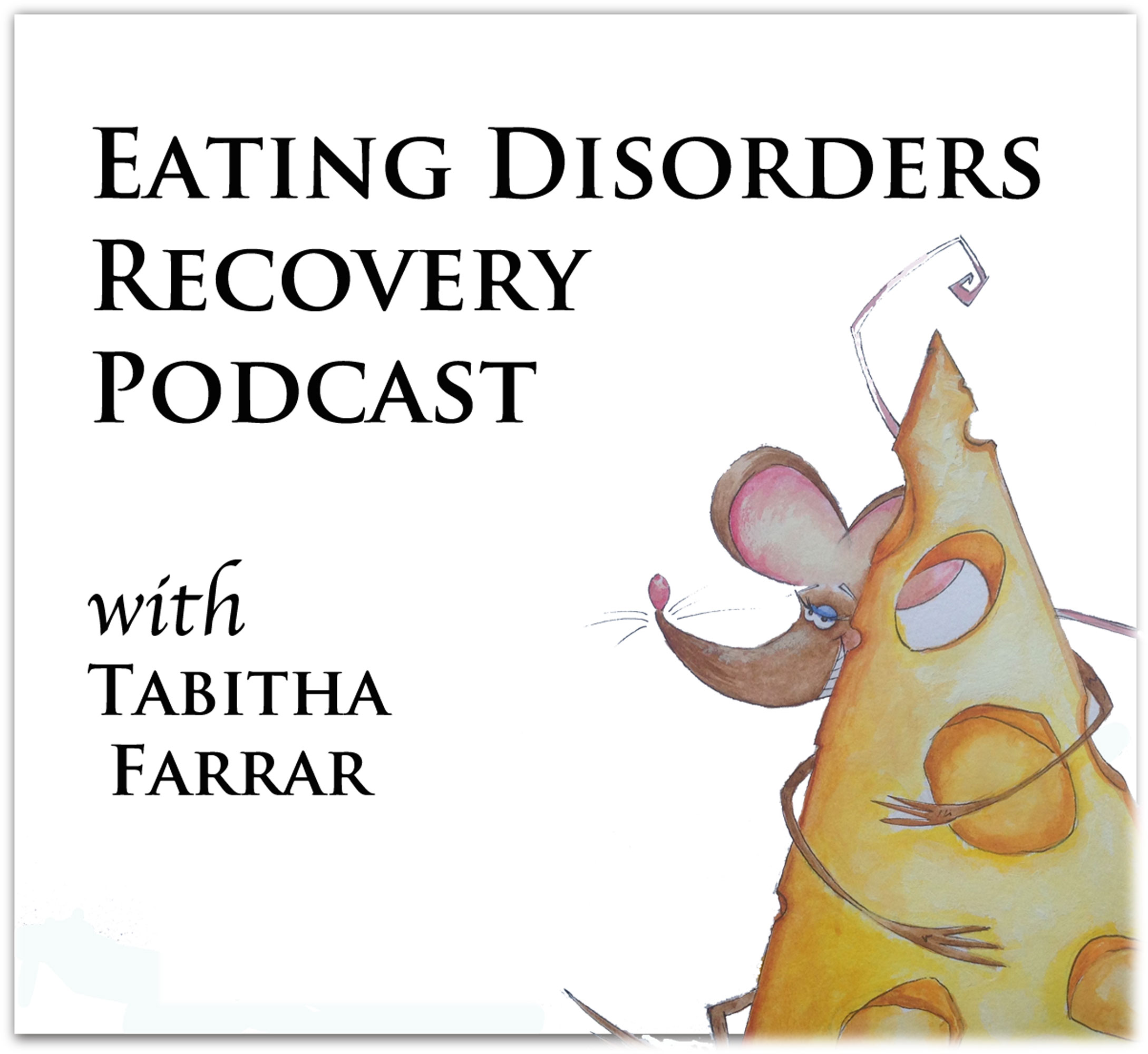
Episodes

Wednesday Sep 26, 2018
Dr Jennifer Gaudiani: Sick Enough
Wednesday Sep 26, 2018
Wednesday Sep 26, 2018
In this podcast, Tabitha talks to Dr Jennifer Gaudiani about her new book "Sick Enough."
Introduction
Part One: Not Enough Calories
- 30,000 Foot View: What happens when you starve yourself?
- Going into Hibernation
- Hormones and Bones
- The Empty Tank
- Extreme Presentations
- Starting to Eat Again
Part Two: Purging
- 30,000 foot view: What is Purging, and Why Does it Cause Medical Issues?
- What Happens to the Body Physically?
- Electrolytes and Stopping Purging
Part Three: Binge Eating Disorder and Weight Stigma
- Binge Eating Disorder (BED)
Part Four: The Unmeasurables
- Irritable Bowel Syndrome and Associated Conditions
- Postural Orthostatic Tachycardia Syndrome (POTS) and Associated Conditions
Part Five: Specific Populations (A Series of Short, Case-Based Chapters)
- Type 1 Diabetes Mellitus (DMT1) and Concurrent Eating Disorders
- Avoidant Restrictive Food Intake Disorder (ARFID)
- Orthorexia
- Elite Athletes
- Male Patients
- Gender and Sexual Minorities
- Women’s Sexual and Reproductive Health
- Older Patients
- Comorbid Substance Abuse
- Caring for the Patient Who Declines Treatment: The Spectrum from Mandated Treatment to Hospice Care
Conclusion

Monday Jun 19, 2017
How ARFID differs from AN/BN — science of picky eating
Monday Jun 19, 2017
Monday Jun 19, 2017
Tabitha Farrar talks to Hana Zickgraf about a recently published research paper titled: Adult picky eaters with symptoms of avoidant/restrictive food intake disorder: comparable distress and comorbidity but different eating behaviors compared to those with disordered eating symptoms
Link to orginal study: https://www.ncbi.nlm.nih.gov/pmc/articles/PMC5086050/
Study summary
Picky eaters are people who avoid many new and familiar foods because they dislike their taste, smell, texture, or appearance. When it is severe, picky eating can lead to weight loss or difficulty maintaining a healthy weight, nutritional deficiencies, dependence on supplements to get adequate nutrition or calories, or difficulty engaging in daily life because of shame, anxiety, or inconvenience. People who experience one or more of these consequences because of their picky eating can be diagnosed with Avoidant/Restrictive Food Intake Disorder (ARFID). People who restrict the amount of food they consume because they are afraid of gaining weight or being fat (and who usually engage in excessive exercise or purging behaviors to get rid of calories) are diagnosed with anorexia or bulimia when their eating leads to weight loss, nutritional problems, or interferes with life. ARFID is a new diagnosis, and in this paper, we show that 1) adults with ARFID symptoms are just as distressed, and just as likely to have symptoms of depression, anxiety, and obsessive compulsive disorder, as those with anorexia or bulimia, but that 2) adults with ARFID symptoms show very different types of eating behavior from adults with symptoms of anorexia or bulimia.
